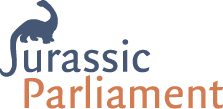Don’t get into back-and-forth exchanges during public comment

By Ann Macfarlane, Professional Registered Parliamentarian
When school boards hold their meetings, it is usual to reserve a time in the meeting for members of the community to speak to their elected officials. This is the “public comment period.” We strongly recommend that elected directors should not get into back-and-forth exchanges with members of the public during the public comment period.
Whose meeting is it anyway?
In Alaska, members of the public are authorized by state law to attend local government meetings. Members of the public may address their elected officials on matters of concern during the meetings. But though school board meetings are HELD IN PUBLIC, they are not MEETINGS OF THE PUBLIC. The meetings belong to school board that is meeting.
What is the purpose of the public comment period?
The purpose of the public comment period is for members of the public to inform the governing body of their views. This is an important function and it is critical for the elected officials to listen with care to the public, and to consider what they hear in their deliberations. It is also critical for the elected officials to convey to the public that they care! Don’t follow the example of a certain county in my home state of Washington, where the elected officials wander out to get coffee or check their cell phones while the public is speaking.
Why the public comment period is not a chance to dialogue
While listening with attention is critical, we believe that it is best not to enter into dialogue with the public during the meeting. It is highly challenging to give accurate responses on critical and complex issues on the spot. We have seen too many instances where the discussion degenerates into a back-and-forth exchange that ends up creating more heat than light. To use a slang expression, sometimes the meeting goes “down the tubes” and never really recovers. This can lead to a fraught atmosphere at future meetings, public outrage, and a general loss of confidence in the board.
What should you say?
In general, it is best not to respond at all to public comment. However, the chair may provide brief factual information, if appropriate. This must not degenerate into lecturing or criticism.
The best approach is for the chair to say, “Thank you for your comment” to each speaker. Keep a warm and pleasant expression if the speaker was complimentary, or a neutral face if not, and then move on to the next speaker. Don’t play favorites with the public, and do your best to treat all speakers the same. Be sure to observe any time limits consistently.
How can you appear interested and concerned if you can’t answer?
It isn’t easy, but the chair and the members of the public body convey interest and concern by their body language. Ideally they should listen to each person speaking as if there were no one else in the room.
Structuring the public comment period
You can also take structural steps to let the public know how much you care. We recommend:
- Announcing the policy at the beginning of each meeting, so people know they won’t be getting answers to their questions or concerns during the public comment period.
- Providing a handout on the policy, including an invitation to submit comments in writing and other ways to make your views known.
- Having a staff person available so people with specific concerns can convey them, to be addressed after the meeting by the appropriate party.
- Establishing other channels to connect with your public, such as community forums, personal discussions, “coffee with a director,” a form on your website, surveys, etc.
More information
Guidelines for Public Comment in Local Government
Don’t include detailed public comment in meeting minutes
Citizen’s Guide to Effective Public Meetings
Conclusion
With proper preparation and consistent implementation, the public comment period can be an important part of your school board meetings and help you serve school community well.
# # #
The views expressed here are the writer’s and are not necessarily endorsed by the Association of Alaska School Boards. AASB welcomes diverse perspectives and civil discourse. To submit a Guest Column for consideration, see our Guest Column Guidelines and email your 400-1000 word submission HERE.
